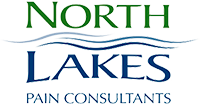Nerve Blocks for Joint Pain
Nerve Blocks for Joint Pain
Nerve Blocks for Joint Pain
Are you struggling with chronic joint pain and feeling desperate for relief? You are not alone. Joint pain is a common issue, affecting millions of people who can often find no respite from the discomfort every year. If your battle against joint pain has left you running out of options, you may want to consider a nerve block – an increasingly popular procedure that temporarily blocks signals from certain peripheral nerves.
Read on to learn everything you need to know about accessing and understanding nerve blocks to treat your painful joints.
Using Nerve Blocks for Joint Pain
This involves injecting a long-acting anesthetic around the affected nerve. This numbs the area and interrupts signals from reaching the brain, providing immediate relief. The anesthetic also prevents generating new signals, resulting in prolonged pain relief.
In addition to this numbing effect, corticosteroids are often used with nerve blocks to reduce inflammation and provide additional long-term pain-relieving benefits.
Types of Nerve Blocks Used to Treat Joint Pain
The most commonly used nerve blocks for joint pain are peripheral nerve blocks, which target specific sensory nerves that supply the area of the body containing the painful joint. These can be divided into two main types:
- Superficial Nerve Blocks: These target superficial sensory nerves just below the skin’s surface. They offer immediate relief from acute pain and can be used for a single symptomatic joint or multiple joints with the same nerve supply.
- Deep Nerve Blocks: These target deeper sensory nerves that run within muscles, tendons, and other tissues. They are most often used for chronic pain conditions, offering more prolonged relief than superficial nerve blocks.
Procedure Outline for Joint Pain
Nerve block therapy is a minor medical procedure that requires no surgery or general anesthesia. The procedure involves injecting a numbing agent or steroid into the area around the nerves causing joint pain. This blocks nerve signals from those areas and helps to reduce inflammation, stiffness, and pain in the affected joints.
In some cases, the doctor may suggest an ultrasound-guided nerve block for more precise targeting of the affected area. Other procedures such as trigger point injections, ganglion impar blocks, and facet joint injections may also be recommended depending on your condition.
Risks of Nerve Blocks for Joint Pain
The most common side effect of nerve blocks is temporary numbness at the injection site. In some cases, allergic reactions to anesthetic drugs may occur, but they are rare and easily treatable.
There is also a small risk of infection, although this is extremely uncommon in properly monitored procedures. Finally, nerve blocks should not be used if there is any chance of damage to the affected area, as this could worsen symptoms or even cause permanent damage.
What to Expect & Life After Injections for Joint Pain
After a successful nerve block procedure, you can expect almost immediate relief from your joint pain. This is generally followed by reduced swelling and an improved range of motion over the next few days or weeks. In some cases, long-term benefits may be seen depending on the severity of your condition.
Although nerve block therapy is generally safe and effective, it’s important to follow the necessary precautions to ensure the best outcome. For example, you may need to take special care when lifting or exercising while under treatment. It’s also important to have regular follow-up appointments with your doctor to monitor your progress and make any necessary tweaks to your treatment plan.
Schedule an Appointment Today!
Nerve blocks can provide a safe and effective way to manage joint pain without the need for surgery or general anesthesia. While it may not be suitable for everyone, this procedure offers many people fast relief and long-term benefits. Before deciding if nerve block therapy is right for you, it’s important to speak with your doctor and discuss all the potential risks and benefits.
At North Lakes Pain, we can help you manage joint pain without sacrificing your mobility or quality of life. Please fill out the form below to contact us today!
